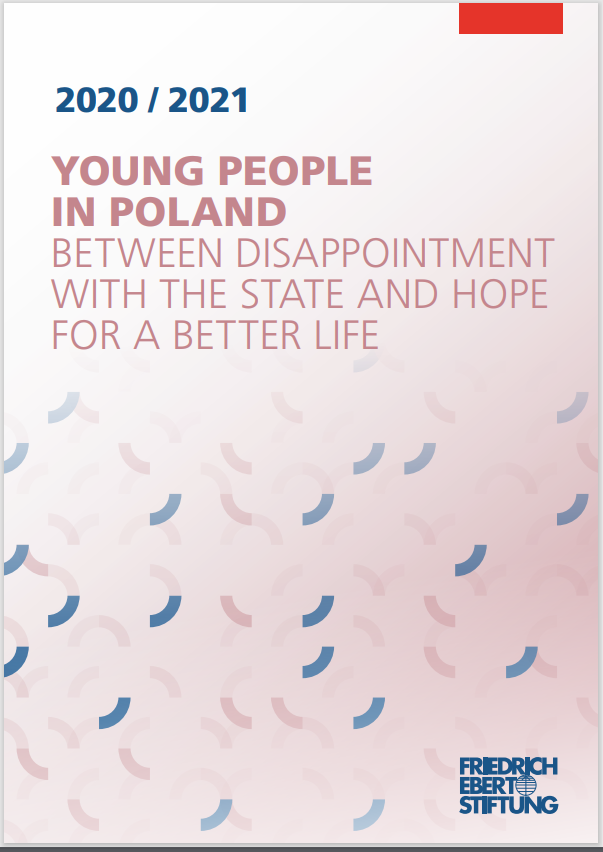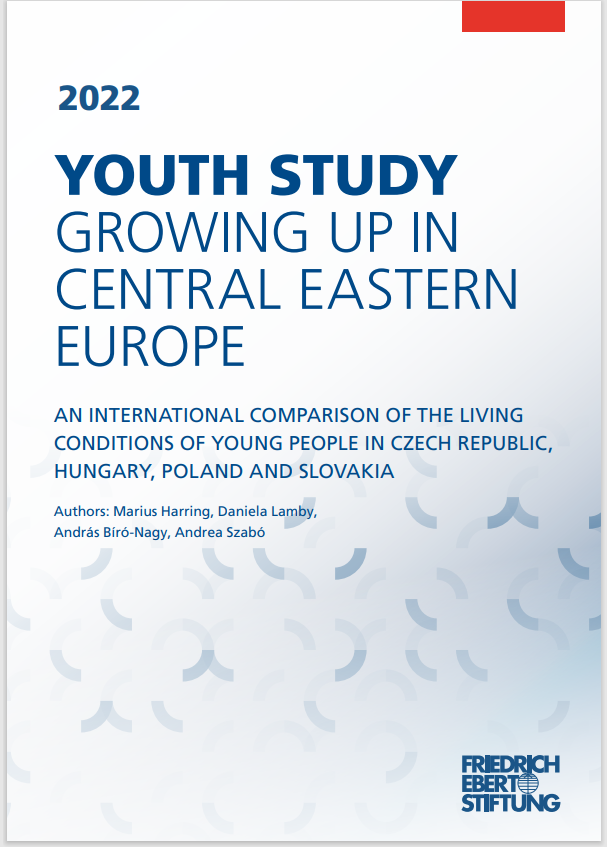
Youth Studies: Poland
Understanding the Dynamics of Abortion Attitudes among Polish Youth
Poland has one of the most restrictive abortion laws in Europe, with abortion being de facto illegal and only allowed in cases when the pregnancy is a result of a criminal act, or when the mother’s life or health is at risk. A 2020 ruling by Poland’s Constitutional Tribunal took it even further and removed fetuses with abnormalities as one of the few exceptions to the law, thereby imposing a near-total ban on abortion. Growing public opposition to the abortion ban erupted into large protests after this ruling.
How do young people in Poland think about a woman's right to terminate a pregnancy?In a recent survey Friedrich-Ebert-Stiftung investigated, among other things, the attitudes of Polish youth aged 14-29 on the topic of abortion. The results, presented in Graph 1 below, reveal that more than half of the respondents believe abortion is either 'often' or 'always' justifiable. Only 11.5% of the respondents believe that abortion is 'never' justifiable and 15,9% believe it is 'rarely' justifiable. It appears that the youth in Poland has a preference for relaxing the restrictions on abortion that are currently in place.
The Influence of Gender, Education, Partisanship and Political Orientation
Graph 2 below offers a more nuanced perspective, illustrating how various factors influence one's stance on the justifiability of abortion.
To explore how different factors influence attitudes towards abortion among Polish youth, you can filter the data in Graph 2 by the variables gender, education level, political orientation, and political party affiliation. Simply click on the dropdown menu in the graph, select the variable you want to filter by, and view the data for specific groups.
GenderThe survey findings highlight a significant gender disparity in attitudes towards abortion, particularly in the 'always' category. While both male and female respondents express a spectrum of views, female respondents are notably more inclined to strongly support the justifiability of abortion in any case.
EducationThe level of education appears to influence stances on the justifiability of abortion to the extent that highly educated people most often expressed the opinion that abortion is 'often' justifiable. Respondents with a high level of education are less likely to 'always' justify abortion compared to the other two groups.
Party PreferenceLooking across respondent’s party preferences which were measured based on who the respondents voted for in the 2019 elections, we can observe significant differences among supporters of the respective parties, highlighting the polarized nature of this particular issue.
Political OrientationSimilarly, when accounting for respondents' self-identified political orientations we observe a significant difference in their stance on the justifiability of abortion. Surprisingly, however, 1 in 4 of those who identify as belonging to the 'political right' believe abortion is 'always' justified.
Key Take-Aways
- The survey findings highlight a notable divergence in attitudes among Polish youth regarding the acceptability of abortion: Only 27,4% of young people think that abortion is 'never' or 'rarely' justifiable, which is what the current laws in Poland prescribe.
- Female respondents are more inclined to support abortion: Almost two thirds of them (64,2%) think that abortion is 'always' or 'often' justifiable, while more than half (58,7%) of male respondents think that abortion is 'never', 'rarely' or 'sometimes' justified.
- Political affiliation correlates with views on abortion, underscoring the polarizing nature of this issue. Nevertheless, even 1 in 4 of those who identify as belonging to the 'political right' believe abortion is 'always' justified.
On the Data
The data was taken from the 2023 Study Personal Optimism, National Pessimism, Trust in Europe. A Comparison of Values, Attitudes, and Plans of Young People in the Czech Republic, Estonia, Hungary, Latvia, Lithuania, Poland, and Slovakia. It investigates the opinions of people aged 15-29 years on a broad range of topics such as education, employment, political participation, family relationships, and values. Read the full study here.Publications
Harring, Marius ; Lamby, Daniela ; Peitz, Julia ; Bíró-Nagy, András ; Szabó, Andrea
Youth study personal optimism, national pessimism, trust in Europe
a comparison of values, attituted and plans of young people in the Czech Republic, Estonia, Hungary, Latvia, Lithania, Poland, and Slovakia
The Youth Study Poland from 2022 zooms in on Polish youth growing up during the pandemic years.

The Visegrad 4 Comparative Youth Study from 2022 surveys people aged 15-29 in Poland, Hungary, Czech Republic, and Slovakia.

